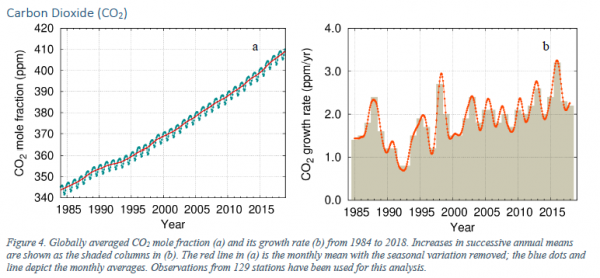
We're Back
Thursday, 28 November 2019
With UK parties competing to promise the earth, XR pushing eco-socialism, and hugely uneven national decarbonisation efforts, it's time to resurrect C4CS.
Did you miss us? A combination of work and domestic events distracted us for a while. But we're now planning to get C4CS going again.
And what a time for it. The UK General Election has turned into a spendthrift, virtue-signalling contest. Politicians are trying to buy your approval by promising to spend your money on things that we are supposed to approve of, like decarbonisation, but just don't value enough to do ourselves.
Extinction Rebellion have been trying to make people care more about the environment by inconveniencing them as much as possible. This has had little effect on the people who can make the big differences, like Trump and Xi.
China in particular continues to jack up its carbon emissions so fast that it dwarfs Western attempts to reduce theirs. The Paris Agreement is gradually revealed as the empty promises of which its critics warned at the time.
The net effect is that global carbon emissions are rising faster than ever, despite the costs incurred by Western nations to make modest reductions in their own footprints. We offshore our manufacturing to countries where the emissions are higher but not measured as our own. And we make the 20% of our energy consumed as electricity less reliable through the replacement of dispatchable with intermittent generation, at enormous cost (£10bn p.a. by 2021), while ignoring most of the rest.
All to "set a lead" that developing nations resolutely ignore (unless they're pitching for Western support) while they focus on driving up their citizens' living standards. The main difference between the West and China is that they are trying less hard to pretend to care.
Sustainabilty has never been further from its true meaning of functioning in a way that could be continued indefinitely.
What's new with C4CS
We've been working on something while we were away. There's a lot of data about the UK's energy systems out there, but it does not intrude much into the debate on energy and the environment. This will mostly be rational ignorance, but there is an element that the data is disparate, not well-known, not always user-friendly, and takes some effort to compile into useful analytical information.
So we set out to pull some of the more useful data together and provide an interface that made it easier to carry out the kind of analysis that tests the (largely misplaced) assumptions in the debate.
And as we did that, we realised that this data still needs to be pulled together within an over-arching framework to highlight the trade-offs, which proponents of one solution or another usually avoid through careful selection of the information they present. So we put together a (still incomplete, but functional) model of our energy systems, to calculate the trade-offs for any Future Scenario variation to our current systems (e.g. installations of capacity).
There are some instructions within the site. They are not comprehensive. We will provide more information over time. If you have problems, questions or suggestions, please register with our new bug-tracking system and submit your comments/ideas.
We will be using these tools to test the credibility of the proposals in the parties' manifestos in the current General Election in the UK. You can try it yourself as well, if you like. But for our assessments, stay tuned.
Related blogs




